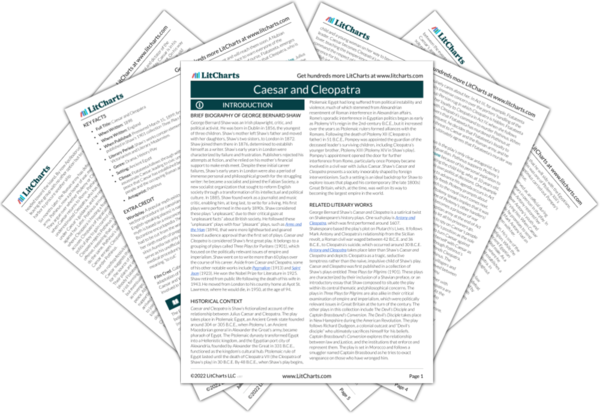When Caesar sits down on the tripod, he symbolically exerts dominance over Egypt and Egyptian culture. The action suggests Egypt’s eventual status as a Roman province, which began in 30 B.C.E., years after Caesar’s assassination, with Rome’s annexation of the Ptolemaic Kingdom. The 1,600 talents Caesar mentions refers to the money Caesar demanded from Ptolemy XII 60 B.C.E. in exchange for protection. Ptolemy paid Caesar by taxing the Egyptian people, which led to a revolt that ultimately necessitated Ptolemy to flee Egypt for Rome. Pothinus’s claim that Cleopatra unlawfully took control of the throne is a baseless accusation. In reality, Cleopatra was co-ruling Egypt with her father, (Ptolemy XII), until Ptolemy XII’s death in 51 B.C.E., at which point Cleopatra’s brother, Ptolemy XIII, became co-ruler. It’s worth noting that Ptolemy XIII is the Ptolemy Shaw depicts in the play, though for unclear reasons, the character is listed as Ptolemy XIV in the cast of characters.
